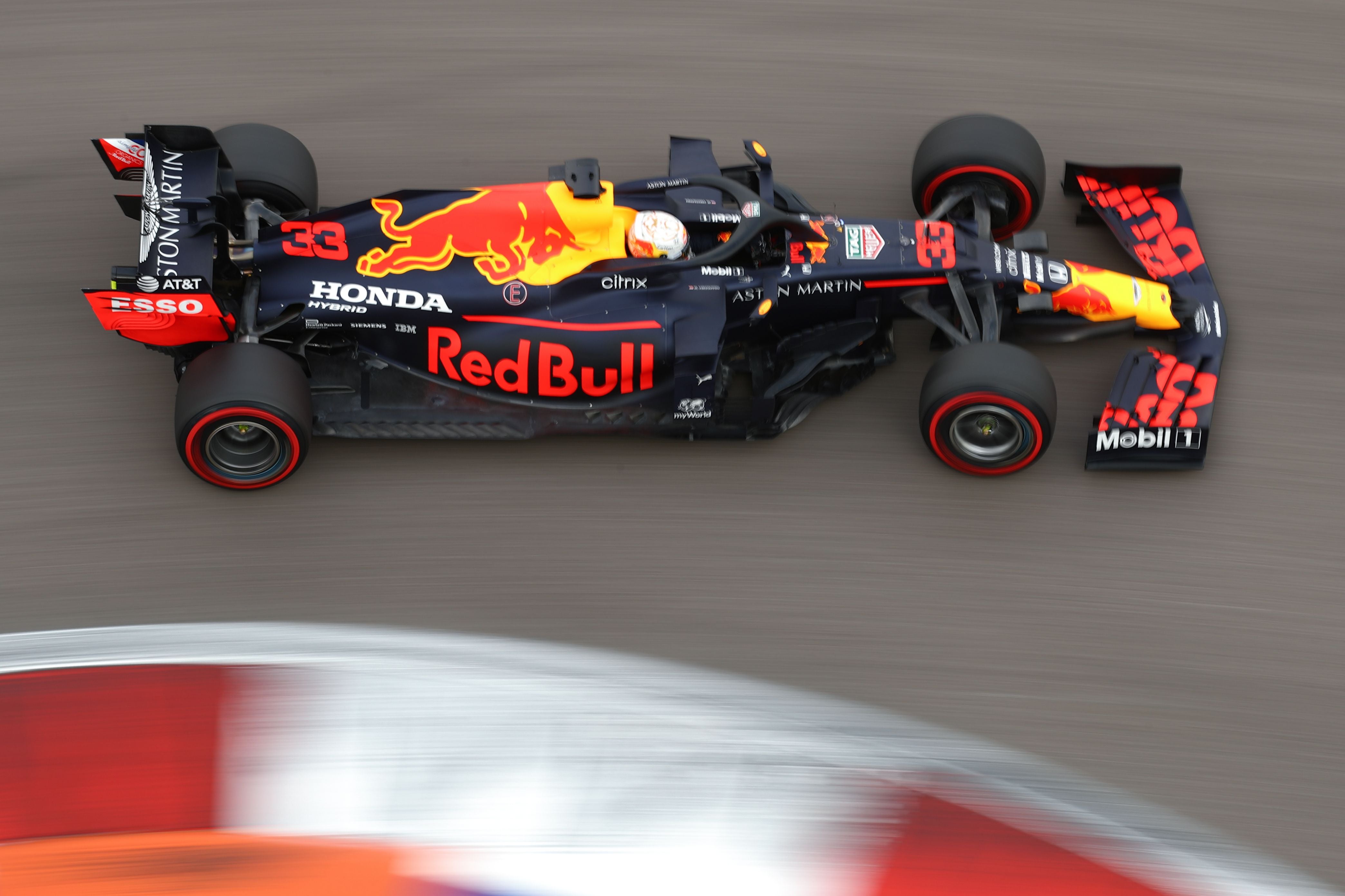Honda to quit F1 at end of 2021 season to leave Red Bull without engine supplier
Japanese manufacturer will leave the sport once again despite returning to the top of the podium since teaming up with Red Bull, who will be on the lookout for a third engine supplier in the space of five years

Your support helps us to tell the story
From reproductive rights to climate change to Big Tech, The Independent is on the ground when the story is developing. Whether it's investigating the financials of Elon Musk's pro-Trump PAC or producing our latest documentary, 'The A Word', which shines a light on the American women fighting for reproductive rights, we know how important it is to parse out the facts from the messaging.
At such a critical moment in US history, we need reporters on the ground. Your donation allows us to keep sending journalists to speak to both sides of the story.
The Independent is trusted by Americans across the entire political spectrum. And unlike many other quality news outlets, we choose not to lock Americans out of our reporting and analysis with paywalls. We believe quality journalism should be available to everyone, paid for by those who can afford it.
Your support makes all the difference.Honda have announced that they will quit Formula One once again at the end of next season, leaving Red Bull and sister-outfit AlphaTauri without an engine supplier for the 2022 campaign.
Chief executive Takahiro Hachigo confirmed on Friday that the decision was made at the end of September, one that has not stemmed from the coronavirus pandemic and the global financial crisis but from the company’s “environmental initiatives”.
"This is not a result of the coronavirus pandemic but because of our longer-term carbon-free goal," he said.
From 2022, Honda will use its F1 budget to fund their plans for fuel-cell and battery EV vehicles, with the company confirming in a statement: "As the automobile industry undergoes a once-in-one-hundred-years period of great transformation, Honda has decided to strive for the 'realisation of carbon neutrality by 2050.
"This goal will be pursued as part of Honda's environmental initiatives which is one of the top priorities of Honda as a mobility manufacturer.
"Toward this end, Honda needs to funnel its corporate resources in research and development into the areas of future power unit and energy technologies, including fuel cell vehicle (FCV) and battery EV (BEV) technologies, which will be the core of carbon-free technologies.”
The sudden development will end their latest stint in the sport, which began in 2015 when they powered McLaren in what proved an ill-fated relationship. However, a switch to Toro Rosso in 2018, and subsequently Red Bull the following year, has reaped rewards, with Max Verstappen claiming four of his nine career grand prix wins with Honda power.
That early success in their first year together helped to achieve and exceed Honda’s target of securing wins in both 2019 and 2020, with Verstappen clinching the 70th Anniversary Grand Prix at Silverstone earlier this year in what has so far proven the only race to be won by a car outside of the two Mercedes drivers of Lewis Hamilton and Valtteri Bottas.
“We thank everyone at Honda for their extraordinary efforts and commitment,” said Red Bull team principal Christian Horner, whose team has already signed up to F1 until at least 2025.
"We understand how difficult it has been for Honda Motor Company to reach the decision. We understand and respect the reasoning behind this,"
"Red Bull Racing remains committed to the sport in the long term. We will now take the time to further evaluate and find the most competitive power unit solution for 2022 and beyond."
AlphaTauri boss Franz Tost added: "We want to thank Honda for the fruitful cooperation. We really enjoyed every day we’ve been working together.
“We will start looking at all possibilities to find the best Power Unit solution from 2022 onwards.”
Honda’s withdrawal is a major blow for both the two teams affected and the sport as a whole, given Red Bull and AlphaTauri have already made it clear that there is no Plan B in place to provide engine support from 2022. Under F1’s regulations, the supplier who currently has the fewest number of customer teams on the grid would be required to power any team left with an engine, which would fall on Renault’s shoulders.
But the fallout from the french manufacturer’s ugly split with Red Bull two years ago has not been forgotten, and neither side is likely to favour an immediate reunion.
The alternatives would leave Red Bull needing to structure a deal with either Mercedes or Ferrari to use their engines, or persuade another team to enter the sport in the near future.
But on a wider scale, Honda’s decision to quit the sport due to environmental influences will raise eyebrows across the sport, and leave F1 sweating on any other engine suppliers who decide to follow suit. Mercedes have put a big emphasis on electrical power after joining Formula E last season, and although Renault have committed to the future through their rebranded Alpine project, they have not been afraid to leave the sport themselves in the past.


Join our commenting forum
Join thought-provoking conversations, follow other Independent readers and see their replies
Comments